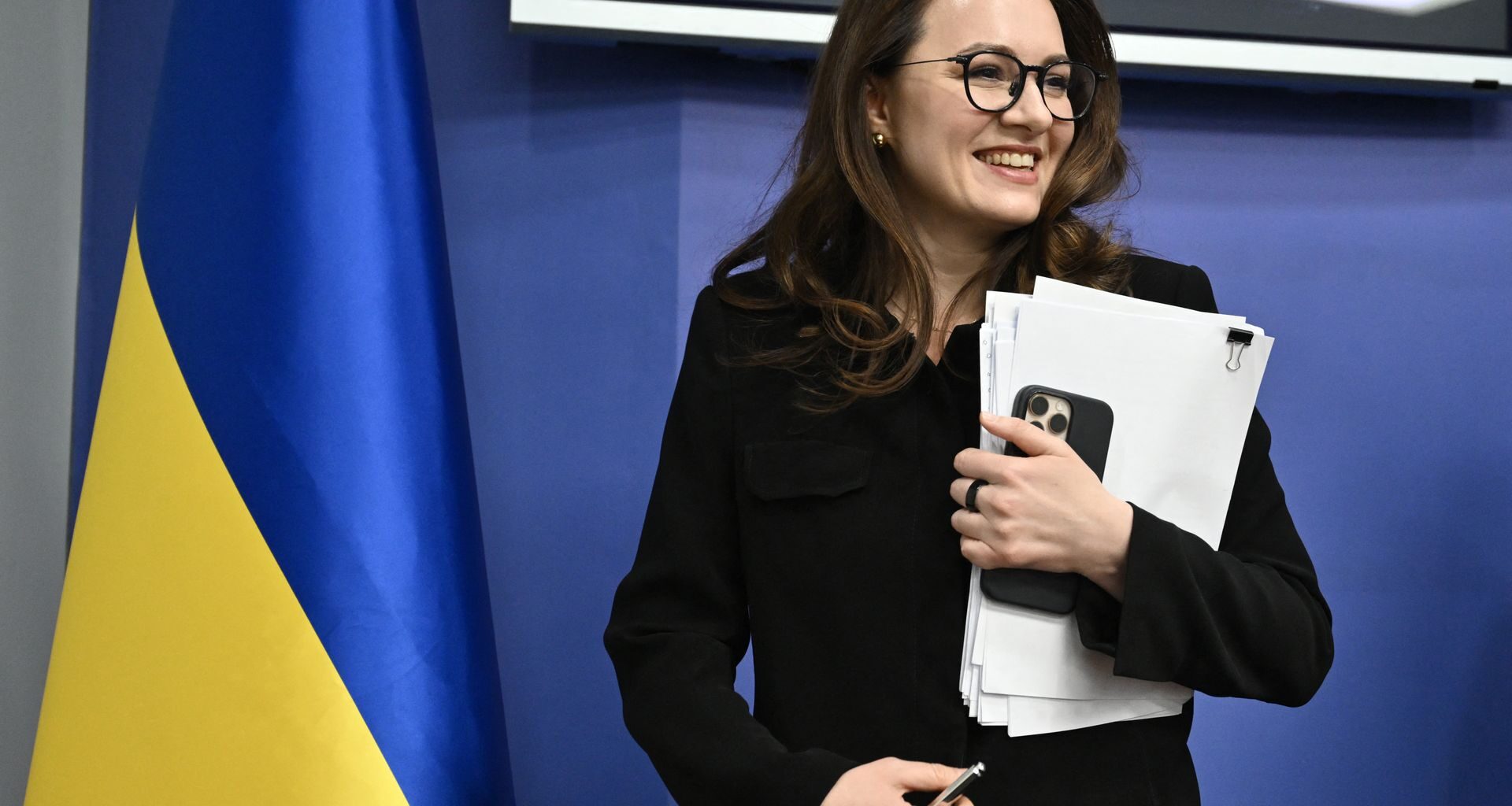Editor’s note: This is a developing story and is being updated.
The Ukrainian parliament voted on July 17 to confirm Yuliia Svyrydenko as the new prime minister in a major cabinet shake-up.
Svyrydenko, a 39-year-old economist who previously served as the first deputy prime minister and economy minister, was tapped by President Volodymyr Zelensky to replace Denys Shmyhal after his five years in office.
The new prime minister was confirmed with the support of 262 votes, with 22 voting against her and 26 abstaining.
The parliament is now expected to confirm other cabinet members. Zelensky revealed his nominees for the new government on July 16 after the legislature formally dissolved Shmyhal‘s cabinet.
The reshuffle takes place as Ukraine continues to resist Russia‘s full-scale invasion while seeking to navigate a transforming relationship with its key international supporter, the United States.
Speaking to the parliament ahead of the vote, Zelensky thanked Shmyhal for his service and noted that a new approach to diplomatic relations with Washington is needed in light of upcoming bilateral agreements.
The president also said the government should audit all agreements with Ukraine’s military supporters and prepare a new level of defense assistance, according to lawmaker Yaroslav Zhelezniak.
“In order to fully implement all this, I am introducing Svyrydenko and the government. Thank you all,” Zelensky said.
Shmyhal, Ukraine’s longest-serving prime minister, is expected to remain in the cabinet as defense minister, replacing Rustem Umerov.
France, Italy reportedly opt out of US-NATO arms deal for Ukraine
France declined to join the plan because of President Emmanuel Macron’s push for European nations to strengthen their own defense industries by purchasing domestically produced arms, Politico reported, citing French officials.
Outgoing Strategic Industries Minister Herman Smetanin will take over as head of Ukroboronprom, Ukraine’s largest state-owned defense manufacturer, Zelensky previously said. The Strategic Industries Ministry will be dissolved, with its responsibilities transferred to the Defense Ministry.
Zelensky presented additional cabinet nominees during a faction meeting on July 16, according to David Arakhamia, the parliamentary leader of Zelensky’s Servant of the People party.
Deputy Prime Minister and Digital Transformation Minister Mykhailo Fedorov will become the first deputy prime minister in the incoming government, Arakhamia said.
The Economy, Ecology, and Agriculture ministries will be merged into a single agency led by Oleksii Sobolev, previously Svyrydenko’s deputy at the Economy Ministry.
Taras Kachka, another of Svyrydenko’s deputies, will replace Olha Stefanishyna as deputy prime minister for European and Euro-Atlantic Integration.
Zhelezniak earlier said that Stefanishyna will not be given a position in the new cabinet and may be appointed an ambassador to the U.S.
The Social Policy Ministry will be renamed the Ministry for Social Policy, Family, and Unity, and Denys Uliutin, the first deputy finance minister, will lead it.
Svitlana Hrynchuk, the ecology minister, will become energy minister, replacing Herman Halushchenko, who will move to the Justice Ministry.
Halushchenko had faced criticism in parliament earlier this year, with lawmakers citing alleged corruption and mismanagement in the energy sector.
Under Ukraine’s semi-presidential system, the president nominates the prime minister, who must be approved by parliament.
The prime minister then proposes ministerial candidates, who also require confirmation by the legislature, which is currently dominated by Zelensky’s Servant of the People party.
Ukraine’s new ground drones are hitting the battlefield in ever-increasing numbers
Ukraine’s use of unmanned ground vehicles (UGVs) has accelerated in recent months, a development experts say could help ease pressure on infantry as Kyiv struggles with ongoing recruitment problems and losses. Ukraine’s first confirmed UGV — often referred to as ground drones — combat mission took place in December 2024, when the Charter Brigade used one in Kharkiv Oblast. It was the first time a homegrown UGV had participated in a full battlefield operation. Developments have come thick and f
